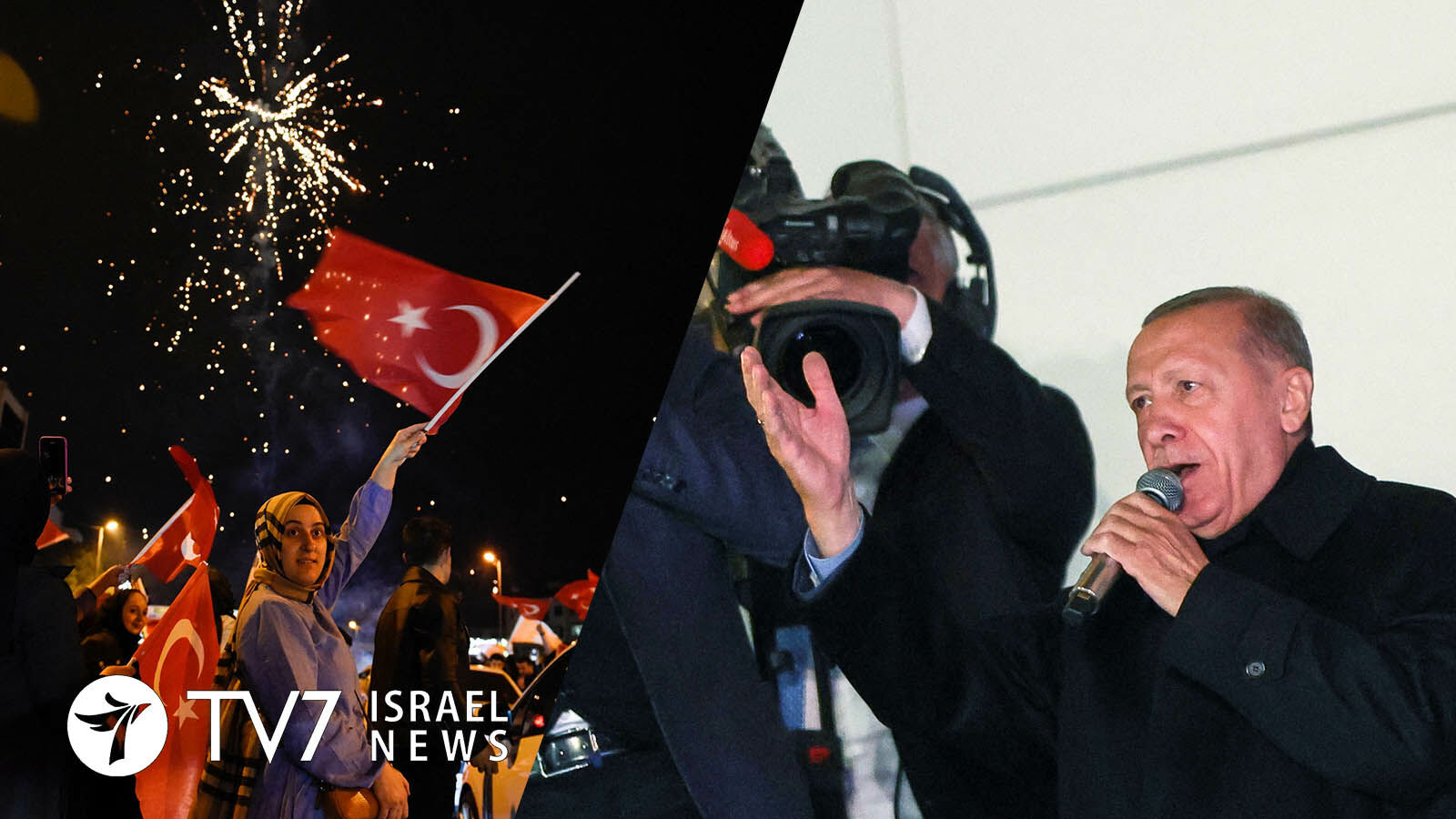As none of the candidates reached the 50% threshold needed for an outright win during yesterday’s vote, a runoff will be held on 28 May.
By Erin Viner
The vote is one of the most consequential elections in the country’s 100-year history, a contest that could end the imperious 20-year rule by current leader Recep Tayyip Erdoğan’s and reverberate well beyond Turkey’s borders. The outcome will determine not only who leads the NATO-member country of 85 million, but also how it is governed, where its economy is headed amid a deep cost of living crisis and the shape of its foreign policy.
Erdoğan’s bid for reelection garnered a comfortable 49.5% edge over 45% won by his rival Kemal Kılıçdaroğlu, who now faces an uphill struggle to prevent him from extending his rule into a third decade. There was a high 88.9% voter turn-out at the polls.
“The winner has undoubtedly been our country,” the Turkish President proclaimed during a speech to cheering supporters at the Ankara headquarters of his Islamist-rooted Justice and Development Party (Adalet ve Kalkınma Partisi in Turkish, AKP).
Kılıçdaroğlu, 74, a social democratic politician, ran as head of the Nation Alliance (Millet İttifakı in Turkish) of six opposition parties. He is leader of the secularist Republican People’s Party (Cumhuriyet Halk Partisi in Turkish, or CHP), established by Turkey‘s founder Mustafa Kemal Atatürk, and led the main opposition since 2010.
Erdoğan’s “People’s Alliance” between his AKP and nationalist partners is also set to take a majority of 321 mandates out of the parliament’s 600 seats, further bolstering prospects he will secure his win after the second ballot.
Moreover, far-right candidate Sinan Oğan, who placed third with 5.2% in Sunday’s election, announced earlier today that he will not endorse Kılıçdaroğlu in the runoff unless the latter rules out any concessions to a pro-Kurdish party.
That faction, the Peoples’ Democratic Party (HDP) is parliament’s third largest and not part of the main opposition alliance. It backs Kılıçdaroğlu but is accused of ties to Kurdish militants, which it denies; and fiercely opposes Erdoğan after his government’s crackdown on its members in recent years.
Kurdish voters, who account for 15-20% of the electorate, will play a vital role in the runoff – poising Oğan as a potential kingmaker.
“We will consult with our voter base for our decision in the runoff. But we already made clear that the fight against terrorism and sending refugees back are our red lines,” said Oğan, 55, leader of the Nationalist Movement Party (Milliyetçi Hareket Partisi, MHP, sometimes translated as the Nationalist Action Party), which ran as part of the right-wing Ancestral Alliance (Ata İttifakı, ATA), including the anti-immigrant Victory Party (Zafer Partisi, ZP).
Support of the 2.8 million voters who backed Oğan in the first round is critical for Kılıçdaroğlu to defeat Erdoğan.
The election in the NATO-member country has largely been viewed as a judgment over Erdoğan’s autocratic rule.
Critics of the 69-year-old President fear he will govern with an even heavier hand if he wins another five-year-term. Extension of his rule will dismay civil rights activists campaigning for reforms to undo the damage they say he has inflicted on democracy in the country. A win by the opposition could portend the release of thousands from incarceration of political prisoners and activists, including high profile individuals such as Kurdish leader Selahattin Demirtas and philanthropist Osman Kavala.
Europe, the United States, NATO, the Middle East and Russia have closely been monitoring the results. In recent years, Erdoğan has asserted Ankara’s power while strengthening ties to Moscow and straining traditional ties with Washington. A defeat for Erdogan, one of Russian President Vladimir Putin’s most important allies, would likely unnerve the Kremlin but comfort the administration of US President Joe Biden, as well as many European and Middle Eastern leaders who had troubled relations with Turkey’s longest-serving leader
While succeeding at turning Europe’s second largest country into a global player, modernizing it through megaprojects such as new bridges, hospitals and airports, and construction of a military industry sought by foreign states, Erdoğan’s volatile economic policy of low interest rates – which set off a spiraling cost of living crisis and inflation – left him prey to voters’ anger. He was also subject to harsh criticism over his government’s slow response to a devastating earthquake in February that killed 50,000 people in the southeast.
The political uncertainty is expected to weigh on financial markets over the next two weeks. Overnight the Turkish lira hit a new two-month low against the dollar, weakening to 19.70 before edging back to 19.645 by 0600 GMT. Additionally, the cost of insuring against a defaulting by Turkey on its sovereign debts surged to a six-month high, jumping 105 basis points (bps) from Friday’s levels to 597 bps, according to S&P Global Market Intelligence. Turkey has long suffered a cost-of-living crisis and soaring inflation.
Kilicdaroglu, an economist and retired civil servant has pledged to revive democracy after years of state repression, return to orthodox economic policies, empower institutions that lost autonomy under Erdoğan’s tight grip and rebuild frail ties with the West.
Turkey was the first Muslim majority state to recognize Israel in 1949, one year after its founding. Although ties had fractured over a series of disputes in recent years, the two countries Israel fully restored diplomatic ties in August 2022.
